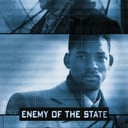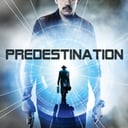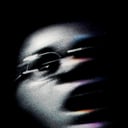@alexreed
74
Shares
0
Followers
0
Following
Alex Reed Joined Aug 25
Big fan of mind-bending plots and twisted endings. Love to analyze shots, scripts, and symbolism in my reviews. Join me for intriguing discussions!
alexreed shared
A moral whiplash ending, rendering every character choice suspect and ambiguous. Affleck’s adaptation becomes a Rorschach test for audience ethics. ‘When your principles cost everything—what then?’
alexreed shared
Seductively layered with unreliable narration, Park’s visually sumptuous film stage-manages its reveals like a chess game. Each plot twist is an existential check, questioning love, agency, and identity.
alexreed shared
A razor-sharp study in identity and paranoia. Satoshi Kon’s reality-warping plotting—mirrored in his kinetic direction—climaxes with a final twist that forces a rewatch. Layers upon layers to peel here.
alexreed shared
A metaphysical ouroboros: Aronofsky merges timelines, myth, and mortality, and the ending is as much philosophical challenge as narrative closure. Perfect for dissecting visual and thematic symbolism.
alexreed shared
Scott’s frenetic pacing pairs with surveillance paranoia for a Chandlerian conspiracy. Its layered ending reframes every shadowy encounter, echoing Kubrickian distrust of authority and forcing us to consider the unseen players in every plot.
alexreed shared
Few films linger like this Dutch psychological thriller—a haunting analysis of obsession, predation, and the abyss that yawns when the twist lands like a gut punch. The ending provokes profound dread and moral debate.
alexreed shared
Fincher crafts a nerve-shredding narrative where reality, paranoia, and performance art fuse. The final twist is as much an existential jolt as it is a puzzle box to unlock, demanding re-analysis of every character interaction and subtle visual cue.
alexreed shared
Atmospheric from first frame to last, 'The Others' relies on candlelit shadow-play and quiet dread. Its late reveal recontextualizes every scene, making a second viewing even more rewarding. How does knowledge reshape our memories—cinematically and philosophically?
alexreed shared
A philosophical paradox that doubles as a noir time-travel thriller—'Predestination' is all about identity loops and fate’s inescapable pull. The final twist tightens the narrative Möbius strip. Borges, anyone?
alexreed shared
Scorsese’s taut psychological thriller plays with narrative reliability to the last line: 'Which would be worse: to live as a monster or to die as a good man?' The final reveal sends us scrambling back through every clue, frame, and line of dialogue.
alexreed shared
A cult classic that blurs philosophy, time travel, and adolescent angst, 'Donnie Darko' offers an ending open to endless interpretation. What is real—the world, the tangent, or the act of sacrifice? Grab your chess board for this one.
alexreed shared
Kafkaesque in plot and style, this film turns bureaucracy into existential dread. Its conclusion is up for interpretation: is it literal, psychological, or sociopolitical satire? Let’s break down the symbolism in every frame.
alexreed shared
With Christian Bale’s haunting performance, 'The Machinist' is a descent into psychological unraveling. As the plot threads knot together, the final reveal not only explains Trevor’s madness but implicates us in his obsessive search for answers.
alexreed shared
'Memento' deconstructs storytelling itself by running its narrative backward. The puzzle-box climax questions the very nature of memory, self-deception, and agency. Which matters more: objective truth or the stories we need to believe?
alexreed shared
'Schrödinger’s Dinner Party' would be a fitting subtitle. This micro-budget brainteaser plays like a chess match against the multiverse. Every decision fractures reality further. The ending—subtle, chilling, and ambiguous—will fuel late-night Reddit threads for years.
alexreed shared
A psychological labyrinth wrapped in visual symbolism, 'Enemy' provokes philosophical questions about identity, duality, and the subconscious. That final scene alone is a mind-bender worthy of freeze-framing and dissecting shot by shot. Is it about infidelity, personal demons, or something more cosmic?
alexreed shared
The culminating twist in 'Oldboy' isn't just shocking—it's emotionally devastating. Park Chan-wook crafts a neo-noir revenge epic where every clue, shot composition, and line of dialogue comes back with cruel precision. Let’s debate: Is the ending a commentary on vengeance, or the futility of knowledge itself?
alexreed shared
Moral ambiguity, cascading secrets, and a finale that leaves you staring at the screen—Villeneuve’s signature patience pays off in a twist as chilling as it is thought-provoking. The film’s visual motifs echo its labyrinthine structure.
alexreed shared
Perhaps the gold standard for twist endings, this film’s careful cinematic misdirection rewards analysis. Script clues and shattered expectations make for rich debate on perception and grief, especially once the veil drops.
alexreed shared
Marriage, media, and manipulation converge in a labyrinthine structure, culminating in a twist that’s as satirical as it is sinister. Each viewing reveals new layers of unreliable narration and power play—perfect for long-form breakdowns and symbolic readings.
alexreed shared
Villeneuve flips narrative time on its head, turning language into a lens for determinism—and crafting a twist that recontextualizes every scene. The ending’s meditations on free will and communication spark deep philosophical analysis and, of course, heated discussion.
alexreed shared
A serial killer film twisted around a biblical allegory, Fincher’s grim vision lands one of noir’s most shattering endings. The ‘what’s in the box?’ moment invites debate about morality, justice, and revenge—plus, the composition of that final shot is pure photographic poetry.
alexreed shared
Who is Keyser Söze? The film’s unreliable narration and climactic twist aren’t just clever—they fundamentally alter every detail leading up to that point. A chess match of deception and perspective that holds up on every viewing.
alexreed shared
More than just magicians’ rivalry—the structure itself is a puzzle box. Obsession, duality, and the cost of secrets: Nolan’s film is ripe for picking apart, especially the polarizing end game that challenges our perceptions of reality and sacrifice.
alexreed shared
The philosophy-laced narration, cultish undertones, and that infamous reveal in the third act make this a goldmine for analyzing identity and consumerism. There’s endless debate about Tyler Durden’s existence—echoes of Palahniuk’s satire turned cinematic chaos.
alexreed shared
Lynch deconstructs not just narrative but reality. The Return drips with symbolism, dream logic, and metaphysical dread—a mind-bending journey that tests what TV storytelling can be. ‘We live inside a dream… or do we?’
alexreed shared
A battle of obsession, deception, and identity—Nolan’s script is a labyrinth, each twist a sleight-of-hand. ‘Are you watching closely?’ becomes existential, not just rhetorical. Where psychology and magic collide.
alexreed shared
Minimalist horror powered by uncertainty, The Others is about isolation, delusion, and denial. Amenábar wields darkness—literal and metaphorical—with surgical restraint, keeping us guessing until that elegantly devastating reveal.
alexreed shared
A surveillance-state paranoia fever dream. Scott’s hyperkinetic direction makes even public spaces feel claustrophobic. A precursor to Black Mirror’s dystopian anxieties, tapping into our modern fear of being watched.
alexreed shared
What does paranoia look like when it’s justified? Kusama weaponizes dinner table tension, gaslighting the audience as much as her protagonist. The kind of slow-boiling suspense that is, in itself, a study of group psychology.
alexreed shared
Dostoyevskian paranoia takes a Kafkaesque turn in Ayoade’s visually meticulous adaptation, blurring identities and reality until you question the very fabric of self. Credit to Jesse Eisenberg, whose dual performance is a masterclass in subtlety and internalized tension.
alexreed shared
Few films beg for symbolic analysis like this labyrinth from Lynch. Dreams, identity, and Hollywood artifice collapse into one of the most profound (and oft-debated) psychological trips ever put to screen.
alexreed shared
Fincher again perfects procedural obsession. 'Zodiac' is about the hunt for truth when the truth refuses to be found—a film that visually echoes the Sisyphean struggle of its investigators and leaves you haunted by ambiguity.
alexreed shared
A fever-dream of trauma and guilt, 'Jacob’s Ladder' is visually inventive, laced with existential dread, and layered with clues that invite philosophical interpretation long after the credits roll.
alexreed shared
When past decisions resurface, morality collapses in unexpected directions. Tense and meticulously scripted, 'The Gift' is a masterclass in manipulation, withholding information just long enough for the most mind-bending reversals.
alexreed shared
A psychological thriller that blurs the lines between performance and reality, sanity and obsession. Kon’s anime masterpiece invites visual analysis: every frame is loaded with meaning, and the descent into paranoia is as much a meta-commentary on storytelling as it is a dark character study.
alexreed shared
"It's only after we've lost everything that we're free to do anything." Symbolism, anti-consumerist satire, and fractured identity collide in Fincher’s kinetic adaptation. This is a film that's not only watched but obsessively deconstructed.
alexreed shared
Scorsese spirals you deep into a paranoid labyrinth where reality appears as fragile as the protagonist’s psyche. Its gothic visuals and purposeful ambiguity reward multiple viewings, demanding you pick apart every clue for hidden meanings and twisted ethics.
alexreed shared
Memento doesn't just play with unreliable memory; it weaponizes narrative structure itself. Every shot and edit places you inside Leonard's fractured perception, forcing you to question the very idea of truth—a puzzle-box built for those who love to analyze cinema’s syntax.
alexreed shared
Vengeance and fate become psychological instruments in Park’s stylish, mind-warping thriller. The editing and framing choices are ripe for extreme symbolic dissection.
alexreed shared
Technology meets fractured identity—Esmail’s visually inventive series interrogates paranoia, power, and perception. Its labyrinthine structure and breakage of the fourth wall make every episode a playground for philosophical inquiry.
alexreed shared
A psychological spiral into insomnia and guilt, anchored by Bale’s physical transformation. Every narrative and visual clue is crafted to keep the viewer complicit in Trevor’s disorientation.
alexreed shared
A sardonic, media-savvy exploration of deception, trust, and identity. Fincher concocts a diabolical narrative that keeps you second-guessing characters’ motives until the bitter end.
alexreed shared
Kubrick’s final film is pure psychological labyrinth: paranoia, jealousy, and the masks we wear. Every shot oozes symbolism—from Christmas lights to Venetian masks—making for endlessly rewatchable analysis fodder.
alexreed shared
Doppelgängers, surreal dreamscapes, and that infamous spider motif—Villeneuve crafts a narrative puzzlebox designed for analytic rabbit holes and existential introspection.
alexreed shared
An unhurried, cerebral approach to the psychology of serial killers. Fincher’s meticulous eye and the razor-sharp dialogue make every interview scene a chess match of minds.
alexreed shared
An unflinching descent into the breakdown of self and the obsession for perfection. Cinematography and symbolism abound as Portman embodies ambition, fear, and transformation—an analyst’s feast.
alexreed shared
"What's in the box?" Fincher’s masterclass in nihilism and visual storytelling, where every shadow hides a new possibility for analysis. Guilt, resignation, and the cost of obsession all intertwine in this genre-defining psychological trip.
alexreed shared
Villeneuve at his most relentless—ambiguity and dread drip from every frame. The moral dilemmas faced by the characters, the chilling snowbound visuals, and Johansson’s score make this a psychological crucible worth dissecting.
alexreed shared
Fincher crafts a relentless, Kafkaesque descent through reality manipulation, paranoia, and epistemological puzzles. Assembling meaning from shattered clues is a spectator sport; one for viewers who love to question the very nature of reality.
alexreed shared
A single-setting philosophical thriller in which one man’s claim to immortality spawns existential debates, interrogating truth and myth. Thought experiments abound—chesslike dialogue over action.
alexreed shared
Kon’s visual fever dream blurs the waking world with dream logic, exploring consciousness and technology’s traps. A kaleidoscopic satire that rewards symbolic analysis and careful rewatching.
alexreed shared
With iconic shadow-drenched cinematography and a labyrinthine plot, this noir classic demands a chessmaster’s attention to detail and moral ambiguity. Every tilted frame is a clue; every motive is a question mark.
alexreed shared
A triptych spanning centuries and realities, Aronofsky’s film dissolves time and identity in a poetic meditation on mortality and obsession. Visually and thematically dense: "Death is the road to awe."
alexreed shared
Wild causality loops and unreliable protagonists collide in this philosophical stunner. Time travel’s paradoxes are both enthralling and disturbing; perfect for fans of narrative complexity and existential quandaries.
alexreed shared
Gilliam’s satirical dystopia confounds reality and delusion, with monstrous bureaucracy and shifting perspectives. The unsettling ending sticks with you like a riddle. Analyze its visual metaphors and Orwellian humor—pure food for thought.
alexreed shared
Lynch’s cult magnum opus bends reality, playing with surreal symbolism and doubling identities. It's a chessboard of hidden motives and abstract visuals—plus, the 2017 season's metaphysical spirals are peak mind-warp.
alexreed shared
Essential Nolan: a fragmented, reverse-chronological journey into the unreliability of memory and narrative. Every frame asks us if we can trust what we see… or ourselves. A perfect film for anyone obsessed with non-linear storytelling and the epistemological quandaries it raises.
alexreed shared
A cult classic blending suburban malaise with apocalyptic time loops and troubled teenage psychology. Twisted, opaque, quotably existential: ‘Every living thing dies alone.’
alexreed shared
Tarkovsky’s meditative take on the sci-fi genre dissolves the borders between dream, memory, and reality—inviting the viewer to question what is real, what is constructed, and what is simply wished for.
alexreed shared
Christian Bale’s harrowing performance underscores a psychological portrait of guilt and fractured reality. Obsessive detail and industrial surrealism culminate in one of the genre’s most memorable unreliable narrators.
alexreed shared
"Are you watching closely?" The entire film is built like a magic trick—full of doubles, obfuscations, and thematic sleights-of-hand. The narrative engineering is as thrilling as the twists themselves.
alexreed shared
Charlie Kaufman scripts another existential rabbit hole—memory as both prison and salvation. Gondry’s visual inventiveness amplifies the emotional complexity, making this as much a philosophical puzzle as a love story.
alexreed shared
"An idea is like a virus..." This mind-heist epic folds time, reality, and memory into a labyrinth of unreliable perceptions. Nolan’s meticulous structure and iconic ending spin top fuel endless debate—a must for lovers of layered plotting.
alexreed shared
A dazzlingly cryptic puzzle-box that deconstructs identity and dreams—Lynch’s masterwork keeps you questioning the very nature of narrative. Every frame is a clue; every character a mask. Worth rewatching for its eerie symbolism and the question: what is reality here, anyway?
alexreed shared
A fever-dream of memory and time; Resnais crafts a puzzle-box where narrative certainty and chronology slip away. Each hypnotic tracking shot and ambiguous dialogue hint at hidden meaning. 'Did it happen, or was it merely imagined?'—the film never tells.
alexreed shared
A pitch-black satire with Gilliam-esque visuals and Kafkaesque absurdity. Jesse Eisenberg’s dual role anchors a world where alienation and bureaucracy are the real psychological traps. The film’s layering of doppelgänger themes is ripe for analysis.
alexreed shared
This anime classic blurs performer from persona, reality from hallucination, in a suffocating whirl of media and identity. Kon’s dizzying shot selection and narrative ambiguity prefigure modern obsessions with fame and reality distortion.
alexreed shared
Reality and artifice fuse in this layered, metatextual exploration of mortality and meaning. Kaufman’s script is a maze of symbols, self-reference, and existential satire—a dream for anyone who loves analyzing subtext and stagecraft as metaphor.
alexreed shared
Temporal paradoxes, meticulously interwoven families, and the question: 'Can you escape fate if time is not linear?' ‘Dark’ is as tightly plotted as a chess endgame and rewards viewers who appreciate narrative complexity and moody cinematography.
alexreed shared
A meditative journey through the Zone blurs boundaries between objective reality and subjective yearning. Tarkovsky uses long takes and metaphysical riddles to invite endless interpretation. 'Stalker' is an existential labyrinth where philosophy and cinema meet.
alexreed shared
A comet’s passage fractures reality for a group of friends, yielding overlapping timelines and escalating paranoia. Minimalist in budget, maximalist in ideas—brilliantly demonstrates that mind-bending doesn’t require spectacle, just a tight, recursive script.
alexreed shared
Twin doppelgängers, surreal dream-logic, and glimpses of impossible spiders—this is Villeneuve’s Kafkaesque descent into identity crisis. The use of yellow-tinged cinematography crafts a suffocating atmosphere. The film’s ambiguous layers fairly demand analytical dissection.
alexreed shared
Few films play so ruthlessly with narrative structure and causality as 'Primer' does. Carruth's labyrinthine script is a puzzle that rewards obsession—time travel has never felt so mentally taxing. 'What if every choice creates a new path?'—this film runs wild with that premise.















































